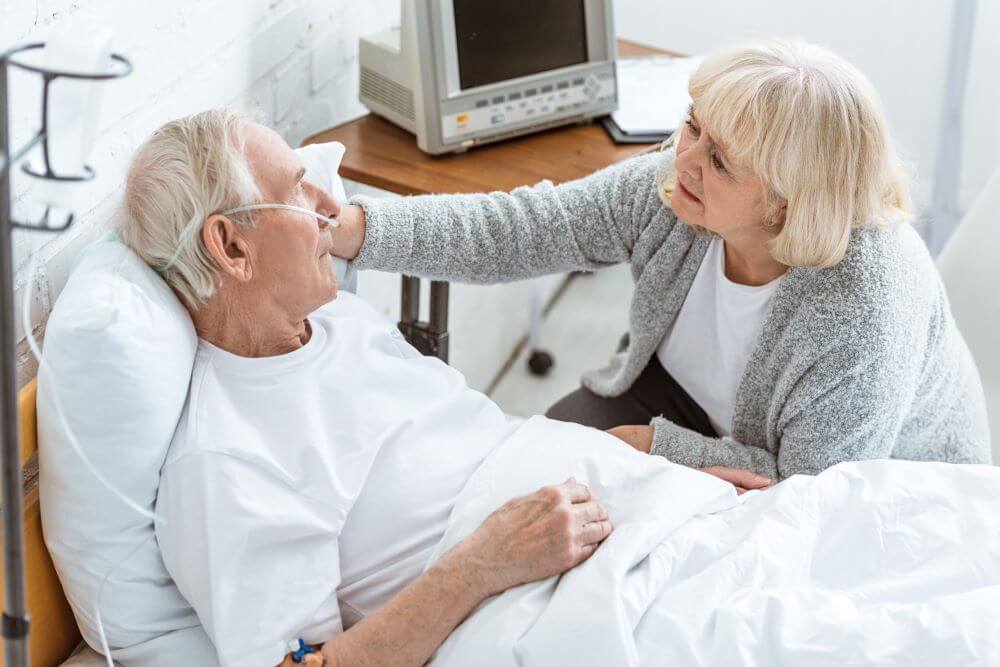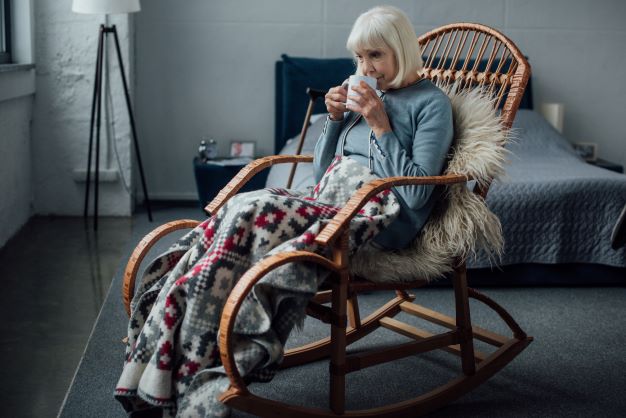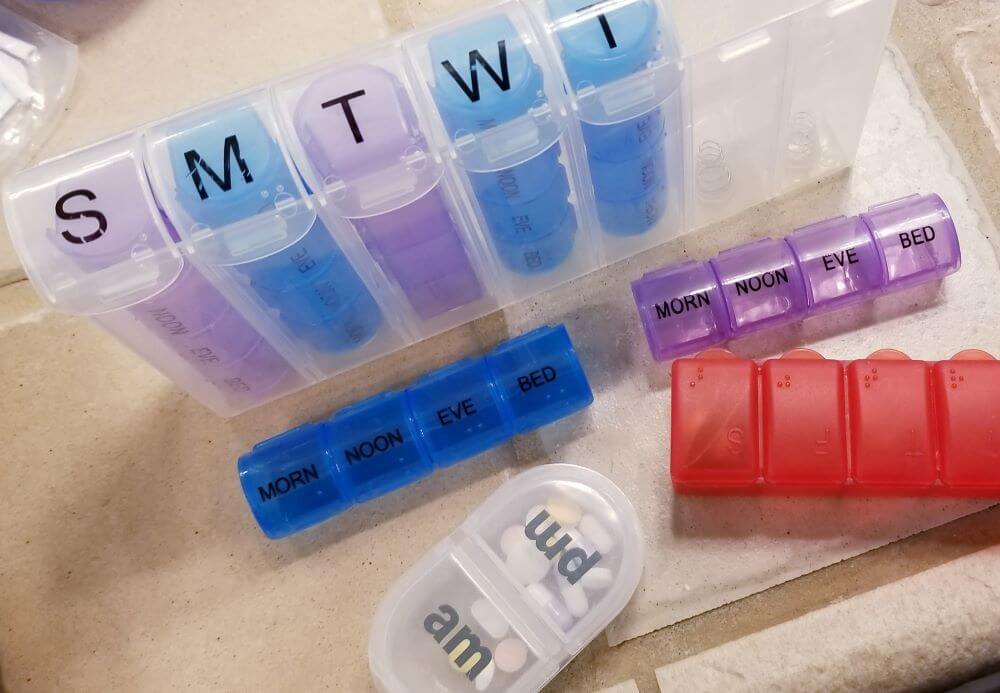Caring for a loved one with dementia can be a rewarding and challenging experience. As a dementia caregiver, you play a vital role in providing comfort, support, and medical attention to your loved one. Dementia is a complex condition that affects the brain’s cognitive abilities, and as the disease progresses, it can lead to various medical complications. In this blog post, we’ll explore some common dementia complications and provide tips on tracking important information for doctors.
The Journey with Dementia:
Living with dementia is like embarking on a journey with an ever-changing landscape. Each day can bring new challenges and triumphs, making the role of a caregiver crucial in navigating this path. Understanding dementia and its potential complications is essential to ensure the best quality of life for your loved one.
Common Dementia Complications
Delirium: The Acute Confusion

Delirium is a temporary state of acute confusion that can occur in individuals with dementia. It can be triggered by various factors such as infections, medication changes, or dehydration. Identifying delirium can be tricky, as its symptoms often overlap with those of dementia. Look out for sudden changes in behavior, increased agitation, or fluctuating alertness. If you suspect delirium, contact your loved one’s doctor immediately, as prompt medical attention is crucial.
Example: Ella’s Story
Ella had been caring for her husband, James, who had Alzheimer’s disease, for several years. One evening, James became unusually agitated and disoriented, and his condition worsened rapidly. Ella noticed he had a mild fever and immediately called their doctor. It turned out that James had a urinary tract infection, which had triggered delirium. With proper treatment, his confusion improved, and he returned to his baseline cognitive state.
Aspiration Pneumonia: The Danger of Swallowing Difficulties

As dementia progresses, swallowing difficulties, also known as dysphagia, may develop. This can lead to aspiration pneumonia, a severe condition where food or liquid enters the airways and lungs, causing infection. Signs of aspiration pneumonia include coughing while eating or drinking, frequent throat clearing, or breathing problems. If you suspect your loved one has aspiration pneumonia, seek immediate medical attention to prevent further complications.
- Example: John’s Story
- John’s daughter, Sarah, noticed that her father had been coughing frequently during meals and seemed to have trouble swallowing. Worried about aspiration pneumonia, Sarah took her father to the hospital, where they confirmed the diagnosis. They successfully managed John’s dysphagia with specialized care and assistance during meals, reducing the risk of further infections. Learn more about swallowing disorders HERE.
Infections: Protecting Against Harmful Invaders

Individuals with dementia may have a weakened immune system, making them more susceptible to infections. Common infections such as urinary tract infections (UTIs), respiratory infections, and skin infections can lead to complications if left untreated. Pay close attention to any signs of discomfort, fever, or changes in behavior, as these may indicate an underlying infection.
Example: Sophia’s Concerns
Sophia had been caring for her grandfather, William, who had frontotemporal dementia. One day, William became unusually irritable and had a fever. Concerned about the sudden change, Sophia contacted their doctor. After a thorough examination, the doctor discovered that William had a urinary tract infection. With prompt treatment, they managed the infection, and William’s mood improved.
Falls: Safeguarding Against Injury

Dementia can affect balance and coordination, increasing the risk of falls. Falls can lead to serious injuries, including fractures, head trauma, and soft tissue damage. Ensure that the environment is safe and free from hazards. Installing grab bars, removing clutter, and using mobility aids can help prevent falls and promote your loved one’s safety. Learn more about Falls HERE.
Example: Mark’s Experience
Mark cared for his mother, Margaret, who had Lewy body dementia. One day, Margaret tripped on a loose rug in the living room and fell, resulting in a minor injury. Concerned about her safety, Mark made some changes to their home, such as securing rugs and adding handrails. These measures significantly reduced the risk of future falls.
Malnutrition: Nourishing the Body and Mind

Dementia can affect appetite and the ability to recognize hunger, leading to malnutrition. Ensuring a balanced and nutritious diet is essential to support your loved one’s overall health. Offer a variety of healthy meals and snacks, and encourage regular hydration. Learn more about nutrition HERE.
Example: David’s Concerns
David cared for his wife, Emily, who had Alzheimer’s disease. He noticed that Emily had been losing weight and seemed less interested in food. Worried about her nutrition, David consulted a dietitian who recommended nutrient-rich meals and snacks. With these dietary adjustments, Emily’s health and energy levels improved.
Dehydration: Nourishing the Body and Mind

Individuals with dementia may forget to drink enough water or may have difficulty recognizing thirst. Dehydration can lead to various health complications, including urinary tract infections, confusion, and dizziness. Ensure your loved one has easy access to water and encourage them to drink regularly. Learn more about dehydration HERE.
Example: Grace’s Concerns
Grace cared for her father, Michael, who had vascular dementia. She noticed that Michael often forgot to drink water, which worried her. She created a schedule with reminders to encourage him to drink fluids regularly. With these simple adjustments, Michael’s hydration improved, and he became more alert and engaged.
Tracking Important Information for Doctors
Being an attentive caregiver involves keeping track of your loved one’s symptoms and changes in their condition. This information can be invaluable during medical appointments, as it helps the doctor understand your loved one’s health status better and make well-informed decisions about their care.
Maintain a Daily Journal

Keep a daily journal where you can document your loved one’s behavior, mood, sleep patterns, and any other notable observations. Note down any sudden changes, new symptoms, or concerns you may have. This journal will serve as a useful reference during doctor visits, enabling you to provide accurate information about your loved one’s health.
Example: Maria’s Journal
Maria cared for her mother, Helen, who had vascular dementia. In her journal, Maria recorded Helen’s daily activities, meals, and moments of confusion. One day, she noticed that Helen had become unusually lethargic and seemed uninterested in her favorite hobbies. When they visited the doctor, Maria shared her journal entries, which helped the doctor identify a potential side effect of a new medication Helen had started recently. Learn more about what dementia caregivers should be tracking HERE.

Medication and Symptom Tracker
Keeping track of medications is essential, especially if your loved one takes multiple drugs to manage dementia-related symptoms or other health conditions. Create a medication chart and update it regularly with dosage instructions, administration times, and any side effects you observe. Additionally, note how your loved one responds to the medications, as this information can assist the doctor in adjusting the treatment plan if necessary. Learn more about medication HERE.
Example: David’s Medication Chart
David’s wife, Emily, had Alzheimer’s disease and was taking several medications to manage her symptoms. To ensure proper administration and track any side effects, David created a medication chart. He noticed that one of the medications seemed to be causing stomach discomfort, and when he informed the doctor, they made an appropriate adjustment that alleviated the issue.

Sudden or Severe Changes in Behavior
If your loved one experiences sudden or severe changes in behavior, such as increased aggression, agitation, or withdrawal, it’s crucial to consult the doctor. Such changes could indicate pain, infection, or a medication-related issue that needs addressing.
Example: Sophia’s Concerns
Sophia had been caring for her grandfather, William, who had frontotemporal dementia. One day, William became unusually aggressive, which was out of character for him. Concerned about the abrupt change, Sophia contacted their doctor. After a thorough examination, the doctor discovered that William was experiencing a toothache, which had been causing his distress. Learn more about recognizing pain HERE.

Physical Health Issues
Pay close attention to any physical health issues your loved one may experience, such as fever, persistent pain, or difficulty breathing. These symptoms could be signs of infections or other medical complications that require immediate medical attention.
Example: Mark’s Experience
Mark cared for his mother, Margaret, who had Lewy body dementia. One evening, he noticed that Margaret was struggling to catch her breath and had a high fever. Worried about her health, Mark called the doctor, who advised them to go to the emergency room. There, they discovered that Margaret had developed pneumonia, which needed prompt treatment. Learn more about what symptoms to look for HERE.
Frequently Asked Questions
Q: Can dementia lead to physical complications?
A: Yes, dementia can lead to various physical complications, such as swallowing difficulties (dysphagia), falls, and infections like aspiration pneumonia.
Q: How can I distinguish delirium from dementia-related behavior changes?
A: Delirium often manifests as acute confusion and fluctuating alertness, while dementia-related behavior changes are more gradual and stable over time. If you notice sudden and severe behavior changes, it’s essential to consult the doctor.
Q: What should I do if my loved one refuses to take their medication?
A: If your loved one refuses to take their medication, don’t force them. Instead, try to understand their concerns and discuss the issue with their doctor. There might be alternative medications or administration methods that could be more suitable. Learn more about giving medicine HERE.
Q: How can I prevent aspiration pneumonia in someone with dementia?
A: To reduce the risk of aspiration pneumonia, ensure that your loved one sits upright while eating or drinking and takes small, manageable bites. Consult a speech therapist or occupational therapist to learn proper swallowing techniques. Learn more about eating issues HERE.
Introducing Alzlog: The Caregiver’s Notebook App
Caring for a loved one with dementia can be overwhelming, but technology can offer valuable support. The Alzlog Caregiver’s Notebook app is a powerful tool designed to assist caregivers in tracking important information, managing medications, and providing personalized care.

Key Features of Alzlog Caregiver’s Notebook App
-
- Dementia Stage Tracking: Allows families to assess the dementia changes and recognize the different stages and prepare for the changes coming their way
- Journaling: The app allows you to maintain a daily journal, making it easy to record your loved one’s behavior, mood, food intake, and any changes you observe.
- Medication Tracking: Keep track of all medications, dosages, and administration times in one convenient place. Set reminders to ensure timely medication administration.
- Symptom Monitoring: Monitor your loved one’s symptoms and easily spot any patterns or new developments that could lead to serious medical issues.
- Doctor Visits: The app enables you to organize essential information for doctor visits, ensuring you have all the necessary details at your fingertips.
- Simplify Care Management: With the app’s user-friendly interface, managing your loved one’s care becomes more efficient and less stressful.
- Communication: Improves communication between families and caregiver helpers, ensuring everyone is on the same page regarding the care and support needed.
Learn more about Alzlog HERE.
Conclusion:
Caring for a loved one with dementia requires patience, dedication, and vigilance. Understanding the potential complications that can arise with dementia is crucial for providing the best possible care. By keeping a daily journal, tracking medications and symptoms, and utilizing the Alzlog Caregiver’s Notebook app, you can play an active role in managing your loved one’s health and well-being.
Remember, you don’t have to face this journey alone. Reach out for support from other caregivers, support groups, and healthcare professionals. Together, we can navigate the complexities of dementia and provide the love and care our loved ones deserve.








